All Stories
-
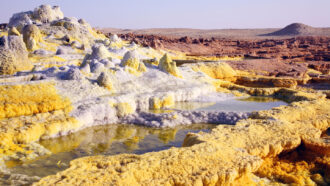 Chemistry
ChemistryScientists Say: Inorganic
Inorganic molecules include salts, minerals and other compounds that lack organics’ carbon-hydrogen bonds.
-
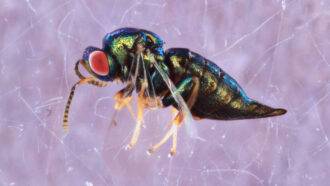 Animals
AnimalsSurprise! Sixteen tiny wasp species found masquerading as one
Scientists used new and old tools to overturn 160-year-old ideas about this wasp. They show you can’t tell a wasp by its looks.
-
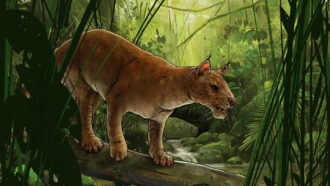 Fossils
FossilsOne of the earliest meat-eating mammals was saber-toothed
Millions of years before the evolution of saber-toothed cats, a newly discovered "hypercarnivore" prowled the forests of what is now San Diego.
-
 Environment
EnvironmentWe all unknowingly eat plastic, which may host toxic pollutants
In the environment, plastics attract all types of toxic chemicals. If ingested, new data show, chemicals on those plastic bits may harm the gut.
-
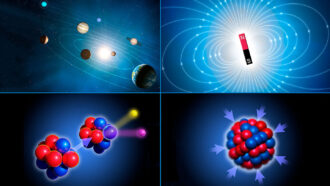 Physics
PhysicsExplainer: The fundamental forces
Four fundamental forces control all interactions between matter, from the smallest subatomic particles to the largest structures in the universe.
By Trisha Muro -
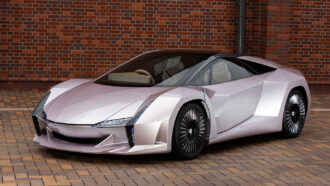 Materials Science
Materials ScienceEngineers borrow a tree’s cellulose to toughen new materials
Cellulose gives plants their strength. Engineers are turning this renewable, environmentally friendly resource into brand new materials.
-
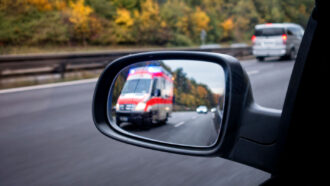 Physics
PhysicsScientists Say: Doppler effect
The Doppler effect is a perceived change in the frequency of light or sound waves due to the wave source moving relative to an observer.
-
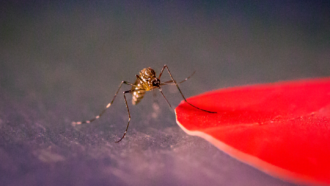 Animals
AnimalsMosquitoes see red, which may be why they find us so appealing
Mosquitoes not only see colors, but also prefer certain ones, such as the hues of human skin.
By Laura Allen -
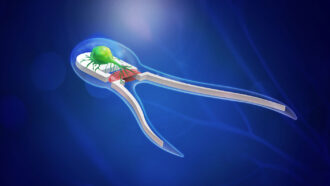 Tech
TechRobots made of cells blur the line between creature and machine
Scientists are using living cells and tissue as building blocks to make robots. These new machines challenge ideas about robots and life itself.
-
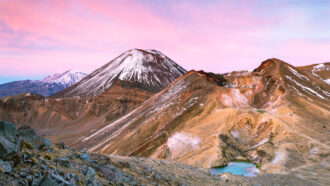 Tech
TechA new device uses atoms’ quantum weirdness to peer underground
Quantum sensors like this one could monitor magma beneath volcanoes or uncover archaeological artifacts.
-
 Science & Society
Science & SocietyLet’s learn about citizen science
Volunteers across the globe are gathering and analyzing data for research on the environment, health, space and more.
-
 Math
MathScientists Say: Equation
An equation states that two groups of numbers or variables are equal to each other.